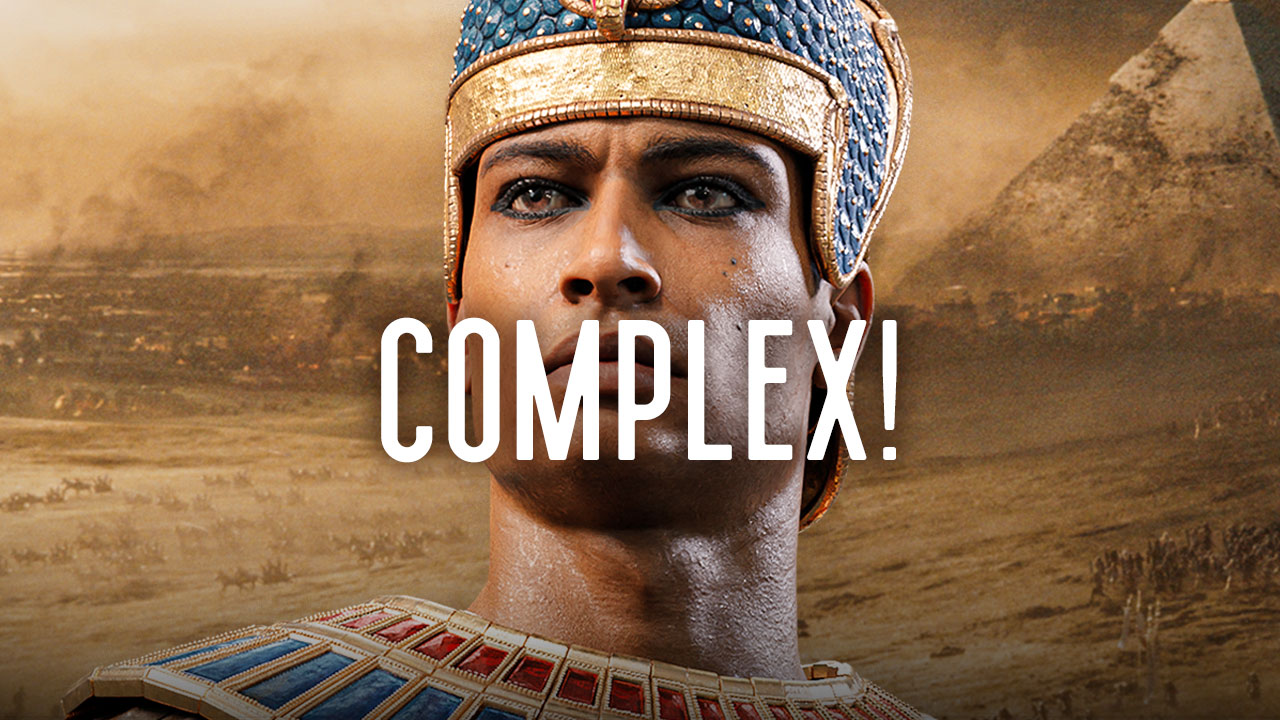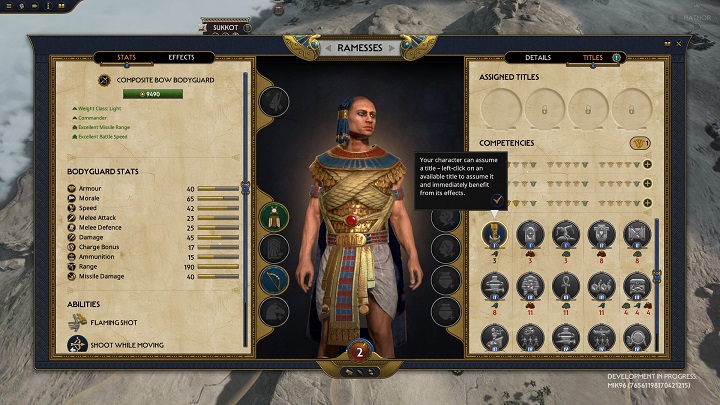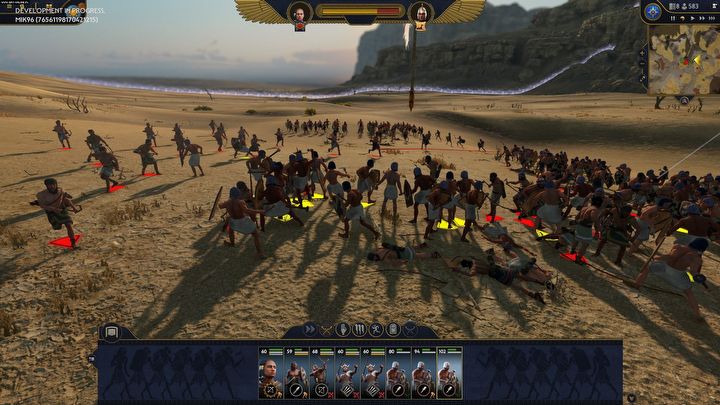Lost in the Desert in Total War: Pharaoh. A Great, Very Complex Strategy
A game of throne is a fight for hearts and minds of people and influence that will let us reach the crown in more or less honest way. Like the iron throne of Westeros, in Total War: Pharaoh we're fighting to become the one ruler, and I really like that.

A few weeks ago, thanks to the courtesy of the developers and publisher, I could test pre-release of the latest installment of the Total War series. For 50 turns, I took control of Ramesses, who allowed me to familiarize myself with a new territory for this series (Egyptian lands have appeared before but not on such a scale and in this specific period). Certainly, this is just a portion of what we'll receive in the full version of the game, but it provides a solid sense of what we'll have to face.
Total War: Pharaoh takes us to the 12th century B.C., that is, the time of the collapse of the New Kingdom in Egypt. Without going into details, I'll just say that it was a period, in which many things were happening at once -the old political order was collapsing, the previously stable state was divided into factions, and these in turn were fighting for influence and domination. So we are thrown right into the middle of this socio-political conflict.
The faction I was assigned to were the Ramesses. They are strong and disciplined warriors led by Ramesses II, who wants to do everything to match, and maybe even surpass, the achievements of the great pharaoh Ramesses I. I spent the first few turns getting used to the campaign map and managing the cities. The system seems quite complicated, but after a while, you'll almost automatically select the right buildings and recruit troops. What surprised me the most was the pace of resource consumption by the army, in my opinion much faster than in previous installments of the series.
Players who want to prepare for an attack within their own borders will be hampered, as their coffers and granaries may be empty after several turns of gathering troops. The key is finding a balance between the number of units needed for defense and the time to train new ones. It's also worth paying attention to any bonuses for cheaper or even free maintenance of the army, because, for instance, by stationing them in outposts, you can gain a significant advantage over the enemy. The developers also implemented an interesting ancient legacy mechanic, which allows to recreate crucial events from real history during the game, enabling to claim considerable bonuses.
When it comes to the gameplay on the campaign map, although a lot has seemingly changed, we're still dealing with the good old Total War. Just like in the previous large installment of the series – Three Kingdoms – we have several types of resources at our disposal. In Total War: Pharaoh these are food, stone, wood, bronze, and gold. At first, I thought that relying on gold would the best idea, but it turned out that all the raw materials needed to be used wisely, depending on the needs.
Gold is useful mainly in diplomacy, as it allows to make significant gains, but on daily basis, food and bronze turn out to be much more important. However, I don't know if I'm a fan of this rather unrestricted movement around the campaign map, which I find a bit unsuitable for a turn-based game; I prefer the classic system where we have a certain amount of movement points. Similarly, I preferred the old-school training of units in barracks rather than by generals as is the case in Total War: Pharaoh.

I really liked the RPG element present here, which allows us to choose skills and bonuses for our character. This lets you adjust the gameplay to your own preferences, and if you like to use archers in combination with spearmen, you'll definitely find appropriate boosts in the character card. We also get access to a technology tree, which also strongly influences further gameplay, so before choosing the next upgrade, it's worth reading its description and seeing where the given branch leads.
RPG elements extend further, as the main objective of the game is to take the place of the pharaoh. To accomplish this, you have to plot, gossip, bribe enemies and generally play politics almost at every turn. We also get access to faction commands assigned to specific nations. They can be activated to obtain certain bonuses for a short time, such as reducing the fatigue of soldiers, the possibility of training stronger units, etc.
Many good things happen in battles as well, which for me were the cherry on top of the strategy developed on the campaign map. I enjoy the stage of creating an army and improving statistics, but like in Football Manager, when everything is ready, there’s nothing better than jumping into the match – in this case, battle!
In Total War: Pharaoh you can see positive changes in this aspect – soldier animations look better, armor deteriorates, punches are heavier, and so on. An intriguing feature (though one that can get a bit irritating in the long run) is the dynamic weather system. With this feature, even simple battles can turn into a fight with the forces of nature, because a sandstorm completely changes the utility of missile units. This system goes beyond weather, as for instance, using flaming arrows near grass, trees or wooden buildings can cause large-scale chaos, literally consuming entire settlements during battle.
I had the impression that the enemy defended its troops better against typical flanking maneuvers. It was much harder to enclose them in a tug of war from all sides. What's more, during one battle I was the one to get encircled and I had to make a lot of effort to get out alive.
As you can see, there's a lot going on here, and as I mentioned – it was only 50 turns, which is a drop in the ocean of gameplay in any Total War game. My first impressions are certainly positive, most of the changes add freshness to the gameplay, and the emphasis on RPG elements allow me to make the campaign more specific and adapt the whole thing to my own preferences. However, I hear this quiet little voice saying that Total War: Pharaoh might overwhelm new players or just those looking for a slightly more traditional approach in the style of Medieval 2 or Rome.
I'm glad that the developers are expanding the series, they aren't standing still but instead create a truly comprehensive simulator of managing a great civilization. At the same time, I have some concerns about the increasing complexity of each successive installment.
Nonetheless, I had a great time and I can't wait for the release. What do you think about the gameplay in the latest Total War – do you like this more complex approach or do you prefer the classic, slightly simpler formula from the first decade of the 21st century? Let us know in the Disqus comments below!

